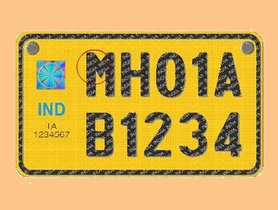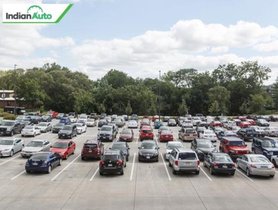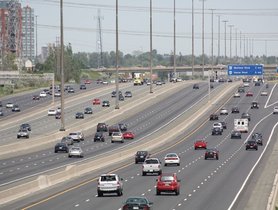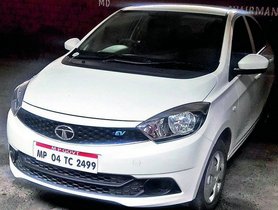Popular Tips
YOU MIGHT BE INTERESTED IN
Car Registration
I. What’s Car Registration?
Car registration is the registration of a car with a Government authority. The purpose of car registration is to create a link between the owner and the vehicle, which is used for taxation or crime detection purposes. Whereas most cars are uniquely identified by a vehicle identification number, only registered ones carry a car registration plate and certificate.
II. What are the documents you need to prepare for your new car registration?
It is very important to beware of the documents required for new car registration. These may slightly differ, depending on the types of cars and the RTOs; however, the general documents that you need to prepare for new vehicle registration include:
-
Form 20: Application for a new vehicle registration
-
Form 21: Sale certificate
-
Form 22: Roadworthiness certificate provided by the automaker
-
Form 23: Registration certificate
-
Form 24: Motor Vehicle Registration
-
Form 29: Notice of the transfer of vehicle ownership
-
Form 34: Form 34 contains the car’s Hypothecation details if you have purchased the car through a bank loan.
-
Form 38A: Inspection report
-
Form 50: Lading bill
-
Form 51: Insurance Certificate
-
Form 54: Report of accidents
-
Form 57: Certificate of foreign insurance
-
PUCC: Pollution Under Control Certificate can be gotten from the dealer
-
Insurance Certificate
-
Address Proof: ID proof documents like electricity bill and ration card, etc.
-
Temporary Registration Certificate
-
Form 60/Pan Card: A Permanent Account Number Card or Form 60
-
Manufacturer and Dealer Invoice
-
Photos: Car owner’s passport-size photograph
-
Date of Birth Proof: Passport, Driving License, SSLC Certificate, etc.
-
Engine Number and Chassis Print
III. New Car Registration Process In India
The new car registration process can vary from state to state. Below are the general steps to get your car registered at RTO.
-
Step 1: Pay a visit to the nearest RTO with your new vehicle.
-
Step 2: Fill and submit all the required documents.
-
Step 3: RTO will inspect and scrutinize the documents.
-
Step 4: Pay the registration fee and tax.
-
Step 6: The Inspector of Motor Vehicle will inspect your vehicle.
-
Step 7: The car data entered in the database will be verified by the RTO Superintendent.
-
Step 8: The registration will be approved by the Assistant Regional Officer (ARTO).
-
Step 9: The process for the Smart Card will be initiated by the RTO office. When it is printed, it will be delivered to the applicant.
IV. What is the procedure for car registration renewal?
Here are the required documents to get your car registration renewed:
-
Form 25: Duly filled up
-
Original Registration Certificate
-
Pollution Certificate
-
Valid Insurance Certificate
After preparing all the necessary documents, you should bring them along with your vehicle to the local registering authority for approval and inspection. The vehicle renewal fee must be paid then. The department will be in charge of issuing new Registration Certificates.
IV. What are the things to keep in mind when getting your car registration?
Apart from all the basics above, you should also bear in mind several things, which may be really helpful to you when you apply for new car registration.
1. You can have your car registered at the dealership or by yourself at the local RTO.
2. If you lose your RC, you can get a duplicate RC online.
3. You are required to carry the car RC while driving all the time, especially when driving on public roads.
4. You will be provided with temporary registration for your car by the dealer when you buy a new car. It is valid for one month and a new car needs to be registered within this period.
5. If your RC has expired, you need to get it renewed within 60 days after the expiry date. If you cannot have your RC renewed within the regulated period of time, you will have to pay a fee of INR 500 for the delay of each month.
V. FAQs
1. What is car registration number?
A car registration number which is also known as the VIN code or VIN number is actually your car’s fingerprint and the specific numeric identifier for your car. It is very important in sales, tracking thefts, recalls, registrations, warranty claims, and all other issues that are associated with your car.
2. How to search for your car registration details online?
You can check the vehicle registration information online via VAHAN - a national vehicle registry website developed by the Ministry of Road Transport and Highways and the National Informatics Centre. Since its launch in 2011, the platform has recorded over 285,768,212 digitalized vehicles. To search for vehicle information, you can simply visit the official website of VAHAN at vahan.nic.in and enter your car registration numbers.
3. Can a 15-year-old car’s registration get renewed?
According to the Central Motor Vehicle Rules, all private cars need to be re-registered after 15 years for every 5 years as long as the car is assessed to be roadworthy by the Department.
4. What is the cost of vehicle re-registration?
For private vehicles, the fees might range from INR 250 to INR 500. The fees have to be paid at the RTO cash counter. You need to collect and submit the receipt to the registering authorities with other documents.
















